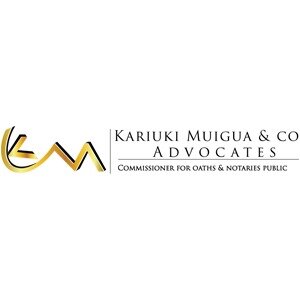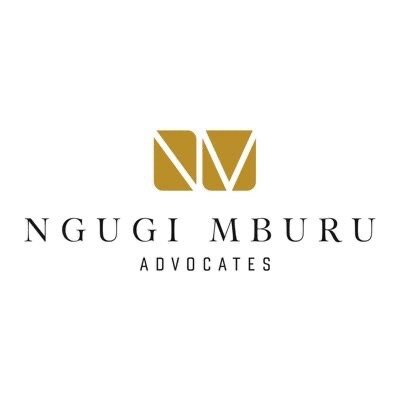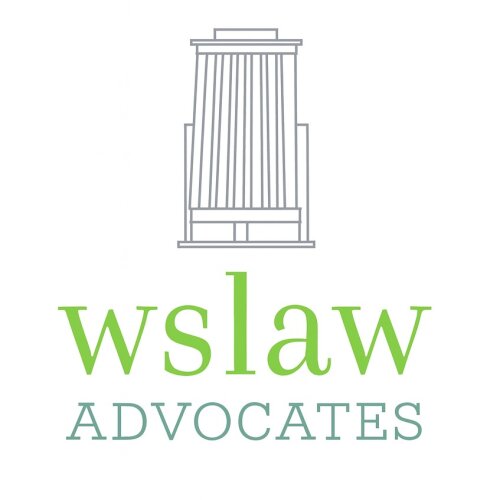Best Patent Lawyers in Kenya
Share your needs with us, get contacted by law firms.
Free. Takes 2 min.
Or refine your search by selecting a city:
List of the best lawyers in Kenya
About Patent Law in Kenya
A patent is an exclusive legal right granted for an invention. In Kenya, patents are governed by the Industrial Property Act, which provides inventors the right to exclude others from using, making, or selling their invention for a specified period. The purpose of patent law is to encourage innovation by providing inventors with a temporary monopoly as a reward for disclosing their invention to the public.
Why You May Need a Lawyer
Securing a patent can be a complex and time-consuming process. A lawyer specializing in patent law can help in the following situations:
- Understanding whether your invention is patentable.
- Assisting in drafting and filing a patent application, ensuring it meets all technical and legal requirements.
- Handling opposition or infringement matters where another party contests your patent or you suspect infringement of your rights.
- Navigating the renewal of patents, as they require maintenance fees at specific intervals.
- Advising on commercialization and licensing agreements to maximize the economic benefits of your patent.
Local Laws Overview
In Kenya, the key legislation surrounding patents is the Industrial Property Act. The Kenya Industrial Property Institute (KIPI) is responsible for patents' registration, and one must submit a detailed application to them. Here are some aspects to keep in mind:
- A patent is typically valid for 20 years from the application date, provided annual maintenance fees are paid.
- Novelties and inventive steps are essential criteria for an invention to receive a patent.
- Patents must fully disclose the invention, allowing a person skilled in the art to replicate it.
- Certain inventions, such as scientific theories, business methods, and artistic creations, are not patentable.
Frequently Asked Questions
1. What is a patent?
A patent is a legal right granted for an invention, providing the patent holder exclusive rights to use and commercialize it for a specified period.
2. How do I apply for a patent in Kenya?
You can apply for a patent by submitting a detailed application to the Kenya Industrial Property Institute (KIPI), which includes descriptions, claims, and technical drawings of the invention.
3. How long does it take to obtain a patent in Kenya?
The process can take several years, including substantive examination, publication, and opposition periods. Engaging a patent attorney can expedite the process.
4. Can I patent a business method or software in Kenya?
Business methods and software as such are generally not patentable in Kenya. However, if software contributes to a technical effect, it may be considered.
5. How can I contest a patent once granted?
Once a patent is published, any person may oppose it by filing an opposition with the KIPI within a specified period, typically 9 months from the publication date.
6. Are patents worldwide?
No, patents are territorial. A Kenyan patent protects your invention only in Kenya unless it is extended to other jurisdictions through international treaties.
7. What is a utility model?
A utility model is similar to a patent but generally covers innovations with lesser inventive step requirements and provides protection for a shorter duration.
8. How much does it cost to obtain a patent in Kenya?
The costs vary depending on the complexity of the invention and the legal fees for engaging a patent attorney. KIPI also charges application and publication fees.
9. Can a foreigner apply for a patent in Kenya?
Yes, foreigners can apply for a patent through local agents or representatives. Kenya is a signatory to international treaties such as the Patent Cooperation Treaty (PCT).
10. What happens if someone infringes my patent?
If you suspect infringement, you may consult a patent attorney to initiate legal action to enforce your rights and seek remedies such as injunctions or damages.
Additional Resources
Here are some resources that may be helpful:
- Kenya Industrial Property Institute (KIPI): The primary institution for patent matters in Kenya.
- World Intellectual Property Organization (WIPO): Offers information on international patent procedures and treaties.
- KIPI's official website and kiosks: Provide access to patent search databases and application forms.
- Professional Associations: Organizations such as the Law Society of Kenya (LSK) maintain directories of attorneys specializing in intellectual property.
Next Steps
If you need legal assistance in the field of patents, consider the following steps:
- Research and engage a reputable patent attorney with relevant experience.
- Prepare all necessary documents related to your invention, including detailed descriptions and diagrams.
- Consult with your attorney to evaluate the patentability of your innovation.
- Notify interested parties about your patent application to oversee potential opposition periods.
- Establish a strategy for commercialization or licensing to maximize your patent's economic potential.
Lawzana helps you find the best lawyers and law firms in Kenya through a curated and pre-screened list of qualified legal professionals. Our platform offers rankings and detailed profiles of attorneys and law firms, allowing you to compare based on practice areas, including Patent, experience, and client feedback.
Each profile includes a description of the firm's areas of practice, client reviews, team members and partners, year of establishment, spoken languages, office locations, contact information, social media presence, and any published articles or resources. Most firms on our platform speak English and are experienced in both local and international legal matters.
Get a quote from top-rated law firms in Kenya — quickly, securely, and without unnecessary hassle.
Disclaimer:
The information provided on this page is for general informational purposes only and does not constitute legal advice. While we strive to ensure the accuracy and relevance of the content, legal information may change over time, and interpretations of the law can vary. You should always consult with a qualified legal professional for advice specific to your situation.
We disclaim all liability for actions taken or not taken based on the content of this page. If you believe any information is incorrect or outdated, please contact us, and we will review and update it where appropriate.
Browse patent law firms by city in Kenya
Refine your search by selecting a city.

















